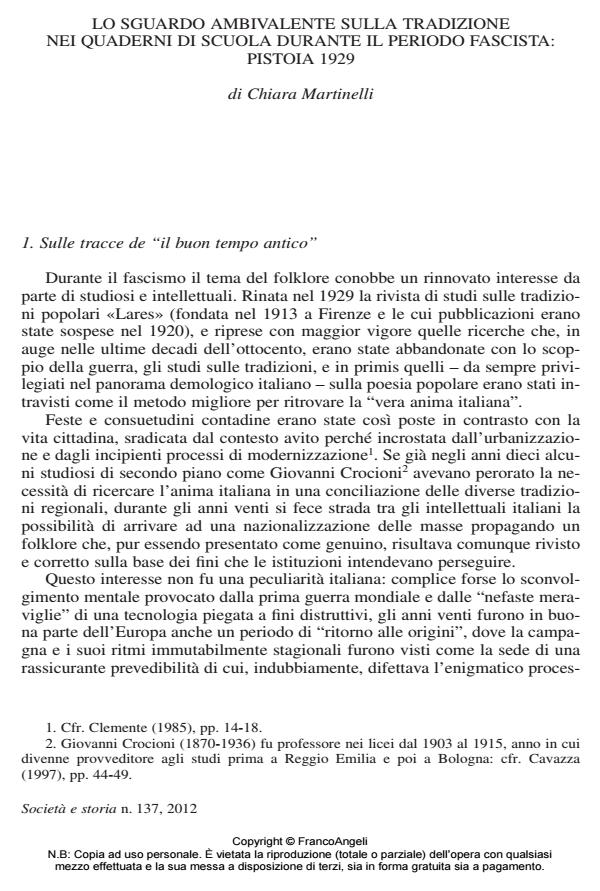Popular Traditions and School Copybooks, an ambiguous Relationship during Fascism: the case Study of the 1929’s school Exposition in Pistoia
Journal title SOCIETÀ E STORIA
Author/s Chiara Martinelli
Publishing Year 2012 Issue 2012/137
Language Italian Pages 28 P. 599-626 File size 523 KB
DOI 10.3280/SS2012-137004
DOI is like a bar code for intellectual property: to have more infomation
click here
Below, you can see the article first page
If you want to buy this article in PDF format, you can do it, following the instructions to buy download credits

FrancoAngeli is member of Publishers International Linking Association, Inc (PILA), a not-for-profit association which run the CrossRef service enabling links to and from online scholarly content.
The paper deals with the relationship between scholastic tuition and popular traditions through the analysis of the copybooks and the pupils’ journals exposed during 1929 School Exposition in Pistoia. The paper shows that the renewal of demology during 1920s and the attention Fascism gave to popular traditions are linked to the great number of popular poems and customs recorded. The Author stated these sources showed a "selected tradition" shaped by Fascism and followed by the primary teachers: peasants customs are selected and praised if they were considered good or they were rejected if they were considered harmful for State attempts to make to grow its influence among peasants. For the Author, these behaviour led Fascism to try to take the leading place of families in young peasants’ mentality, but the building of a new concept of tradition and State led pupils to start to think about modernity in a new and individual way.
Keywords: Popular traditions, modernisation, Fascism cultural policy, school, school copybooks; teachers.
Chiara Martinelli, Lo sguardo ambivalente sulla tradizione nei quaderni di scuola durante il periodo fascista: Pistoia 1929 in "SOCIETÀ E STORIA " 137/2012, pp 599-626, DOI: 10.3280/SS2012-137004